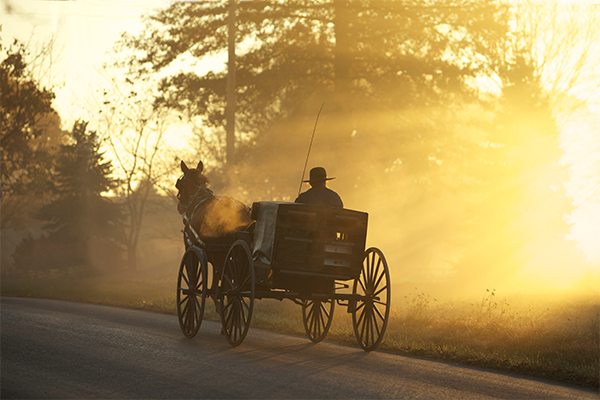
Pulling Heavy Loads
By Lola Wilcox
CROW March, 2009
For us the life of action, of strenuous performance of duty;
Let us live in the harness, striving mightily;
Let us rather run the risk of wearing out than of rusting out.
– Teddy Roosevelt
My grandfather was a jockey as a boy and young man, including sulky or harness racing, little known in the western U.S. When I was a child a man came to visit who told me “your grandfather always won because he had smooth hands on the reins and a light hand on the whip”. Grandpa didn’t talk about winning; he talked about pacers and trotters and how he loved those horses. It didn’t matter if they were harness racers or sleek cutting horses or pinto ponies. He took me with him to Centennial Race Tracks, where he knew everybody, and I grew up with a sure eye for a winner. Once I was in college and fretting to him about how this particular show we were doing at the coffee house was not coming together, and the underground newspaper’s next edition was not getting out, and what about this and that. He told me a story (he’d probably told it before but I was ready to hear it now).
You take the team out in the morning with the wagon, and it’s been a long trip out, and standing in the sun for the loading. Now you’re headed back home, it’s dusk, you’re tired. You come to a hill that is going to be a long pull. What do you do? Many a driver will pick up the whip, and lay it on, trying to get home sooner. But the horses don’t respond to the whip – they look like they do, but when they start to slow down they slow down further than they were going when you first put the whip to them. So you whip them again. And they slow down further. You’ve seen that. That woman that was your first dorm mother was like that kind of driver. People don’t do what you want, so you lay on the whip. I’ll tell you what works. You loop the reins over one arm, give the horses their head, sit back and enjoy the sunset. They know what to do, they know they’re going home. Let them set the pace.
So I went back to my apartment, propped my feet up and studied for finals. The paper got out, and the show went up, and everything was just fine.
I forgot this lesson.
During the process of my father’s illness and eventual death I dreamed of finding an old harness tossed in the corner of the living room, dusty from lack of use. As I remember the dream now, when I found it I knew it was mine, and took it up and put it on with a sense of sadness for the freedom I was surrendering. Not restive, frustrated sadness; more a trembling of mourning. We’d had a couple of years since my husband’s mother’s seven-years-long process; years spent doing exactly what we wanted when we wanted to do it. Somewhere along in here I thought “Wow, I’m finally an adult”, no longer constrained by what… ? Where did I get the idea, especially with my set of parents and grandparents, that being an adult suggested a lack of constraints? Perhaps I thought I would be free to choose my constraints rather than have them imposed, like parental or college dorm restrictions. I learned life imposes them; frequently we feel we are trudging up hill.
Children begin with a great willingness to learn to pull the load – they want to help cook and clean, wash the clothes, and plant the garden. Left alone, they don’t think about it, just learn more and more and get more and more helpful. My boys came home one day from playing at some one else’s house with the news that Blake’s mother didn’t let him wash his own clothes. They were looking at me like I’d run a sting with them. “I’m so sorry,” I said. “What will he do when he has to take care of himself.” That was the last conversation we had about that. By the time they were teenagers other work, like fixing supper and doing the dishes, were managed by labor contracts written on the side of the refrigerator.
I read about a woman who worked in a factory town in the late 1800’s – about the time my grandfather was born. (Dec. 2, 1882) She fed the family, made the bread, went to the factory at 7 a.m. When the noon whistle blew she ran home, kneaded the bread, put it into the pans, ate something and ran back to work. When she got home at evening whistle, the risen bread went in the oven, she made dinner, got everybody fed and in bed, and sat down with her husband for a short time by the fire. “That was the best part of the day,” she commented to the interviewer. I remember thinking “she’s pulling a heavy load”; and she was, but it wasn’t harder than others were pulling, so she kept it up.
Friends of mine have stepped into harness: A divorced woman forced to sell everything to pay an absent husband’s debts, a man to tend his wife through her long illness, people learning to live after a stroke or going blind, parents galore raising challenging children, grandparents taking up when parents disappear, people my age taking in their parents, looking at the 401K’s balance and getting a part-time job, birthing an idea and bringing it to final product and then to market… In my net of friends I can look about and see that almost every person has at one time or another picked up a harness, put it on, and settled into pulling it up the long hill.
Pulling heavy loads is about Duty, I think – “the strenuous performance of duty”. But it can also be about Grace. “Smooth hands on the reins and a light hand on the whip.” I remember this lesson now. When I feel I’m struggling uphill, exhausted, I “drop the reins over one arm, give the horses their head, and settle in”. 80% is perfection or at least enough. I let my body, my family, my team set the pace. We know we’re going home. We know the way. We know we will get there.

